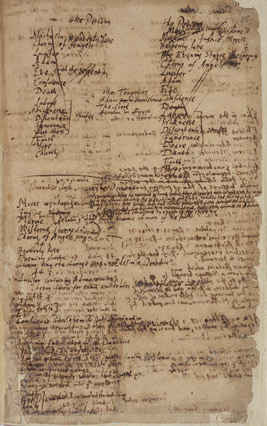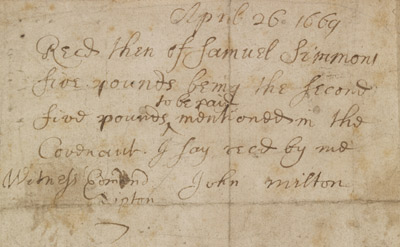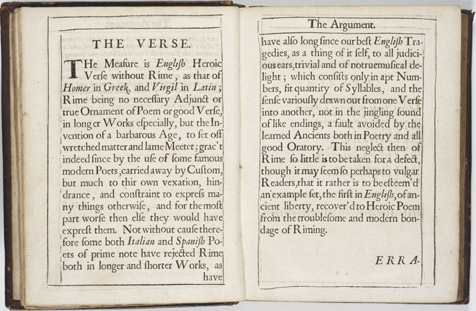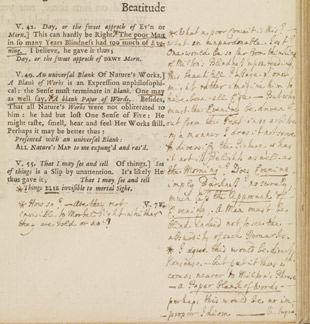The Noblest Poem that Ever was Wrote
In the eighteenth century, long after the event, a story was told of the courtier-poet Sir John Denham walking into the House of Commons carrying a sheet of Paradise lost ‘wet from the press’, and acclaiming the new work as ‘the noblest poem that ever was wrote in any language or in any age’. Paradise lost is a Christian epic, intended by Milton, and recognised by posterity, to be worthy of comparison with the pagan epics of Homer and Virgil. Both the frequent reprinting and the enlarging format of the early editions indicate the steady rise of the poem’s reputation; it has been estimated that 12,000 copies had been sold by 1712, the year in which Joseph Addison published a judicious appreciation in the Spectator. That critical appraisal and textual commentaries were given to a modern work—marks of admiration unprecedented in England before they were accorded to Paradise lost—demonstrates the poem’s recognition, within the space of a few decades, as an unparalleled national classic.
 |
Early jottings on the theme of Paradise lost treated as a five-act drama, c. 1640.
Trinity College, Cambridge, MS R.3.4. By kind permission of the Master and Fellows of Trinity College, Cambridge. |
 |
Receipt for a payment in respect of Paradise lost, 1669. Christ’s College,
Cambridge, MS 8. By kind permission of the Master, Fellows and Scholars of Christ’s College, Cambridge. |
 |
Milton’s testy justification of the verse of Paradise lost, produced at the request of the poem’s publisher.
Ely.d.500 |
 |
A page from Jacob Tonson’s 1720 edition of The poetical works of Mr. John Milton, with manuscript annotations by Richard Bentley. The engraving of Satan, Sin and Death at the gates of Hell is after a
design by Louis Chéron (1660–1725). Adv.b.52.12 |
 |
William Cowper’s annotations to Richard Bentley’s 1732 edition of Paradise lost. Christ’s College, Cambridge, Ee.2.8. By kind permission of the Master, Fellows and Scholars of Christ’s College, Cambridge. |
|





